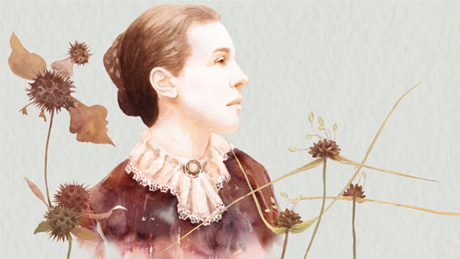Lilias Trotter could have been a famous painter. Instead, she chose to travel with two other single women to preach the gospel in Algeria. Why?

In a recent New York magazine cover story, journalist Rebecca Traister notes that many more US women are embracing “that it’s okay for them not to be married.” She calls the decline of marriage “the most radical of feminist ideas.” But in fact, many women throughout history chose to be single not out of feminist commitments but out of Christian faith.
One such woman was Lilias Trotter, an English missionary who remains surprisingly obscure, even among missionary-loving evangelicals. Born to a well-to-do London family in 1853, Trotter showed an early aptitude for watercolor painting and in her teens became a protege of John Ruskin. She challenged the influential art critic’s assumptions about women artists (namely, that they shouldn’t be), and he promised her a life of fame under his guidance.
Then, at just the moment her career was set to take off, Trotter traveled by boat, then train, to Algeria with two other single women to preach the gospel to Muslims. She died there in 1928.
Trotter is the subject of Many Beautiful Things, a new documentary by D.C.-based filmmaker Laura Waters Hinson. The film, which is much more narrative and aesthetically pleasing than most of its genre, premiered in February at the National Gallery of Art. It features voiceover narration from Michelle Dockery (Lady Mary in Downton Abbey) and a soundtrack from Ryan O’Neal of Sleeping at Last. It released to DVD and online streaming channels in time for International Women’s Day, observed on Tuesday.
Hinson recently spoke with print managing editor Katelyn Beaty about the film, and whether we must necessarily choose between the way of art and the way of faith.
Source: Christian Movie Reviews